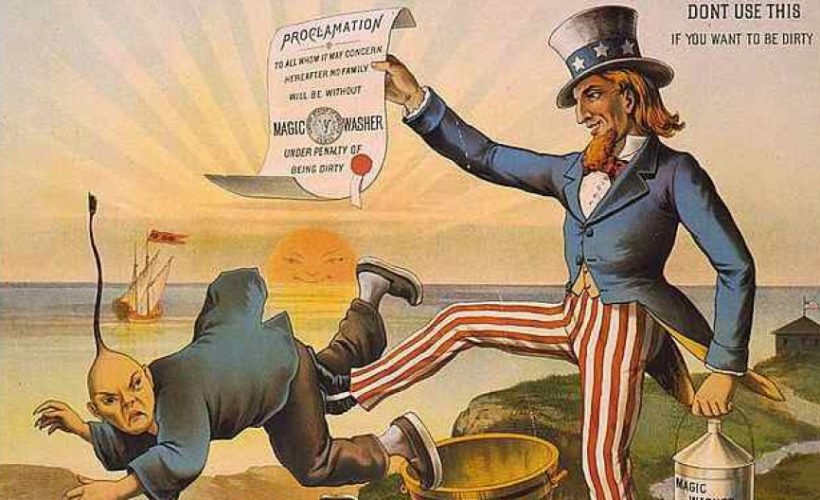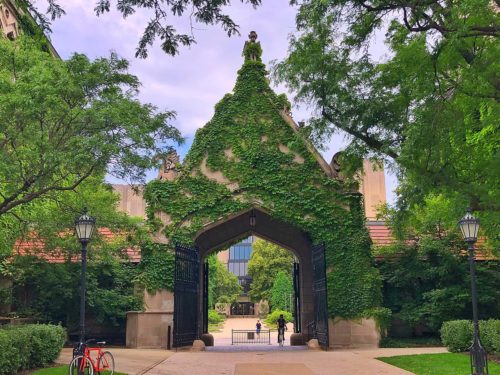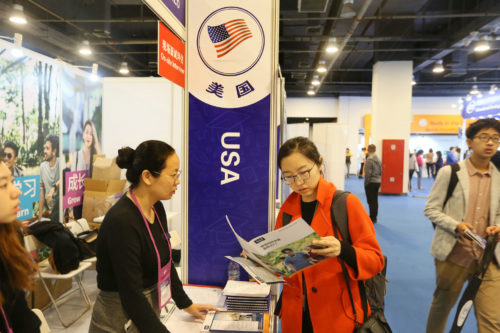Responses to rising sinophobia: Statements of concern over the targeting of ethnically Chinese people

Since early 2018, the American immigration and justice system has appeared to target Chinese students and ethnically Chinese researchers with paranoid rhetoric, visa restrictions, and targeted policing and politicization of China-connected research. Click through to our Sinophobia Tracker to read more about it:
https://signal.supchina.com/the-u-s-sinophobia-tracker-how-america-is-becoming-unfriendly-to-chinese-students-scientists-and-scholars/
Here’s why we launched the Sinophobia Tracker, according to editor-in-chief Jeremy Goldkorn:
Meanwhile, since early 2019, more than a dozen major research universities and numerous professional associations have put out statements of concern over the targeting of ethnically Chinese scientists, researchers, and students in the U.S. We’ve compiled many of their statements below.
![]()
Faculty members, post-docs, research staff and students tell me that, in their dealings with government agencies, they now feel unfairly scrutinized, stigmatized and on edge – because of their Chinese ethnicity alone.
—L. Rafael Reif, President of the Massachusetts Institute of Technology, June 25, 2019
![]()
In recent weeks, the Berkeley administration has received several reports of negative comments directed at our Chinese-American faculty, as well as at researchers engaged in collaborations with Chinese companies and institutions, implying without basis that these scholars could be acting as spies or otherwise working at odds with the interests of the United States.
—UC Berkeley administration statement on February 21, 2019
![]()
Since the beginning of 2019, more than a dozen major American research universities have put out statements like these specifically voicing support for Chinese students and scholars, who have widely reported encountering visa difficulties and feeling heightened suspicion from the U.S. government:
- 2/21: Reaffirming our support for Berkeley’s international community / UC Berkeley
- 3/28: Statement at regents meeting on U.S.-China research collaborations | Office of the President / University of Michigan
- 4/22: Reaffirming commitment to our international community / UC Davis
- 5/10: Our commitment to international scholarship / University of Delaware
- 5/17: Message from President David Leebron to the Rice community / Rice University
- 5/23: Yale’s steadfast commitment to our international students and scholars / Yale University
- 5/30: UMD’s commitment to international collaborations and the international community on campus / University of Maryland
- 6/10: Citing U.S.–China tensions, Zimmer affirms commitment to international students / University of Chicago
- 6/13: A letter to the Columbia engineering community / Columbia University
- 6/17: Statement from Senior Vice President for Enrollment and the Student Experience Dolan Evanovich reaffirming university’s commitment to international community / Syracuse
- 6/24: Reaffirming the intrinsic value of our international community / Washington University in St. Louis
- 6/25: Letter to the MIT community: Immigration is a kind of oxygen / MIT
- 8/15: The importance of being an open, global and secure research university / Carnegie Mellon University
Over half a dozen other universities have put out statements not mentioning China, but fairly obviously with U.S.-China tensions in mind, voicing support for the international community on campus:
- 3/7: In support of our community – notes from the quad / Stanford University
- 6/11: A statement by the president and provost / Case Western University
- 6/13: Reaffirming our support for UC San Diego’s international community / UCSD
- 7/9: Supporting our international scholars and students / Johns Hopkins University
- 7/11: Our international community of scholars / California Institute of Technology
- 7/22: In support of global education / University of Pittsburg
- 11/7: Reaffirming UCLA’s commitment to international collaboration and the international community / University of California, Los Angeles
Two universities based in California, Stanford University and UC Davis, echoed UC Berkeley’s warning that the state’s history shows “an automatic suspicion of people based on their national origin can lead to terrible injustices.”
![]()
Other statements of concern, calls to action, and notable op-eds written in response to rising sinophobia:
On March 8, veteran journalist John Pomfret wrote an op-ed in the Washington Post, titled, America’s new — and senseless — Red Scare.
On April 19, Moss Roberts, a professor of East Asian Studies at New York University, examined the roles of race, religion, politics, and history in U.S. attitudes toward China since 1949 in an Asia Times piece: Rethinking U.S. Sinophobia.
On April 25, United Chinese Americans issued a statement titled, UCA raises concerns for Chinese American scientists as collateral damage.
On June 20, Dominic Ng, chairman and chief executive of East West Bank, wrote in the LA Times that Targeting Chinese students and entrepreneurs in the U.S. is the wrong way to battle Beijing.
On July 23, Peter Mattis and Matt Schrader wrote an essay in War on the Rocks titled, America can’t beat Beijing’s tech theft with racial profiling, calling for an informed approach to U.S. national security worries about China.
On August 5, Peter McPherson, president of the Association of Public and Land-grant Universities, and Mary Sue Coleman, president of the Association of American Universities, wrote in Inside Higher Ed that “Higher education institutions must work to bolster the security of their research without sacrificing openness and collaboration.”
On August 21, about 150 prominent biomedical scientists and pharmaceutical industry leaders in the U.S. have signed an open letter opposing recent government actions that have created “a climate of fear and uncertainty” amongst Chinese and Chinese-Americans in the biomedical research community.
On August 27, Marc Magnier of the South China Morning Post reported on the new “Red Scare” targeting Chinese-American scientists and scholars, and the organizations, such as Asian Americans Advancing Justice, that are fighting back.
On August 30, Lee C. Bollinger, president of Columbia University, wrote an op-ed in the Washington Post titled, No, I won’t start spying on my foreign-born students.





